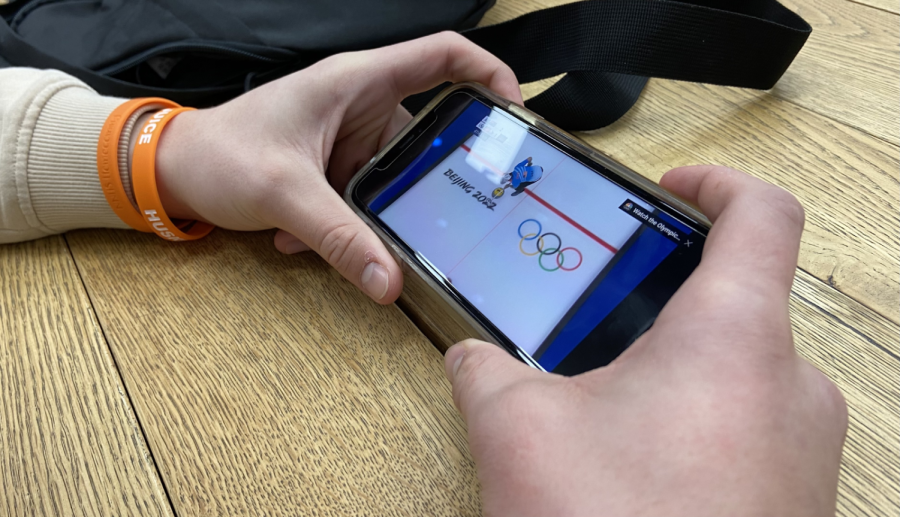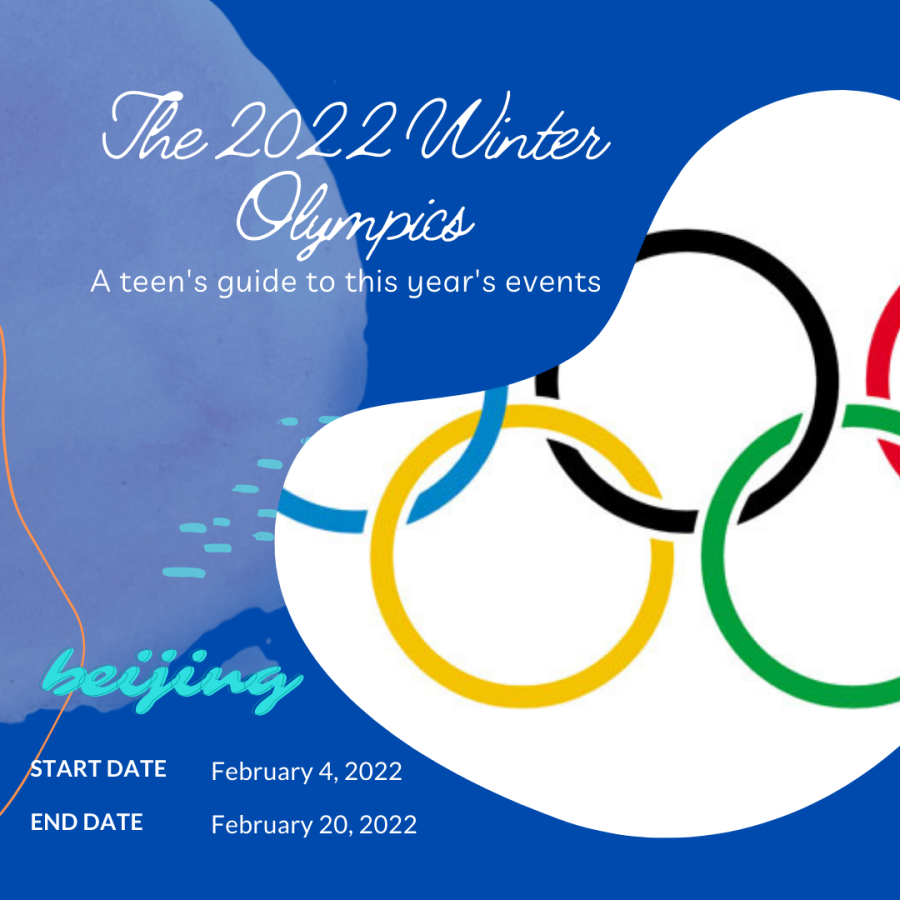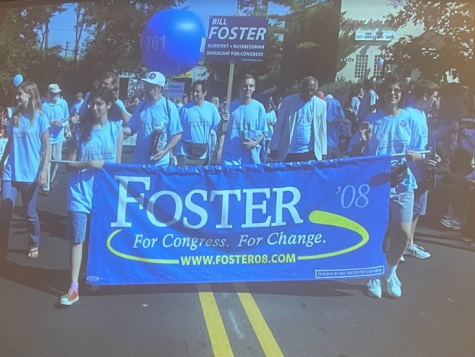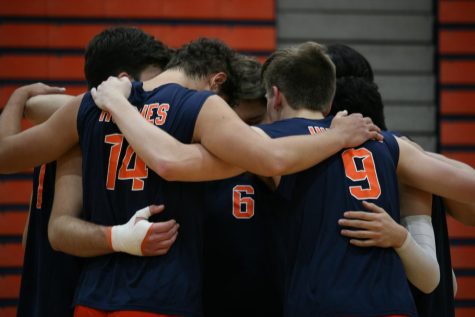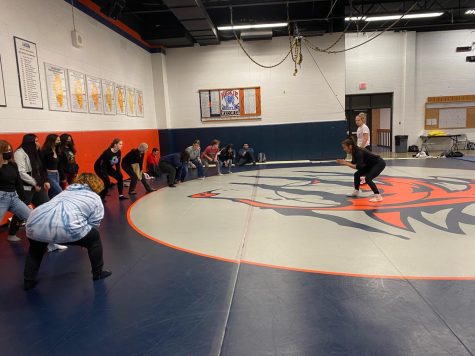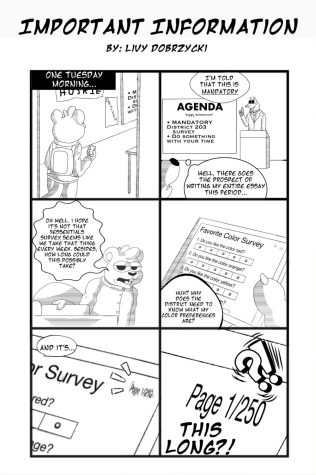Pandemic Winter Olympics: Declining teenage popularity, Covid-19 restrictions and where to watch
Will teenagers be watching this year’s Winter Olympics?
The Olympic Games: an enormous event that unites the world around the incredible athletes that each country has to offer. This event is iconic, with people setting life-long goals to eventually compete, attend, or become involved in it at some point in their lives.
But in recent years, the popularity of the Winter Olympics may have decreased amongst teens and amid the pandemic. With the 2022 Winter Olympic Games in Beijing coming up, teenagers might be less engaged than usual.
Of a group of twenty high school students from Naperville North, they all said that they had watched the Olympics before. When asked to specify their favorite memories from previous games, nearly all of the students expressed that they enjoyed watching events like gymnastics, swimming, and diving.
Each of these events are featured in the Summer Olympics, not the Winter Olympics.
Ryan Anderson, a junior at Naperville North High School, talked about the lack of publicity that the Winter Olympics have gotten this year.
“I enjoy watching the summer ones, but I didn’t even know that the winter Olympics were even coming up. I have not really seen it on social media or on TV yet,” Anderson said.
On the other hand, the Winter Olympics are a popular topic in some teenagers’ households. Regan Kaiman, a freshman at Naperville North, explained that her mom brings up the Olympics often, but she is not as invested in them.
“[I] do not think [I’m] going to watch them this year,” Kaiman said.
Another potential reason for the decline in interest in this year’s Winter Olympics is all of the other programming, on streaming services and otherwise, that teens have to choose from. One of the most popular TV shows among Generation Z at the moment is Euphoria, which can be streamed on HBO Max. This show has exploded in popularity and has appealed to a largely teenage audience. Along with that, the biggest football game of the year, Super Bowl LVI, on Feb. 13, will likely cause teens to put the Olympics on the back burner.
In the summer events, there are more typical sports (at least for the United States) such as gymnastics, volleyball, and swimming: events that the teeenagers themselves are likely to partake in. But in the Winter Olympics, there are very few events that are common for teenagers to participate in as a full-time sport, especially in a state like Illinois, where cold-weather sports such as skiing and snowboarding are much less common.
Although teenagers may not be the primary demographic group watching this year’s Winter Olympics, there still will be millions of Americans tuning in to cheer on their country. The Beijing Winter Olympics will continue to maintain the tradition of showcasing the world’s best athletes.
Covid-19 restrictions for the 2022 Winter Olympic Games:
The Winter Olympic Games in Beijing will begin on Feb. 4 amid a host of Covid-19 restrictions regarding spectators, officials and athletes.
The precautions are part of China’s “zero tolerance” coronavirus approach, enforcing strict rules in order to prevent outbreaks. This includes mass testing, vaccination, and harsh lockdowns to curb the spread of the virus.
However, on Jan. 23, organizers of the games reported 72 confirmed cases among 2,586 personnel involved in the event, although none of the cases were connected to athletes or team officials. This rise in infections prompted officials to suspend ticket sales to the Chinese public. Organizers will “invite groups of spectators” to watch the games instead, but it is not clear how the groups will be chosen.
Spectators who are allowed to attend the Olympics must be from the Chinese mainland and are expected to follow all Covid-19 countermeasures before, during and after each event. One such precaution encourages spectators to clap instead of shout while cheering on athletes to diminish particle transmission.
The heaviest restrictions have been placed on athletes and team officials. Fully vaccinated participants have to present two negative tests before arrival, remain in a “closed-loop” bubble with the same people, take tests daily and submit health reports on a mobile app. In the Village Bubble, athletes will have a small circle of people who they can interact with and restrictions on which areas of the Athlete’s Village they can actually visit. Unvaccinated athletes must quarantine for 21 days upon arrival, raising questions concerning working out and practicing for their events.
Furthermore, athletes are not allowed to interact with the Chinese public. They will only be permitted at the athletic venues, their accommodations and the transport in between. Additionally, no materials handled by participants are allowed to leave the Athlete’s Village bubble until after the games.
Anyone who tests positive must isolate in a government hospital or quarantine facility until two PCR tests taken at least 24 hours apart find no evidence of the virus, regardless of vaccination status. This can be problematic because traces of Covid can be seen on tests for weeks after the initial infection. Similar to the 21-day initial quarantine for unvaccinated athletes, team officials have raised concerns over whether athletes will be able to return to competition in time for their events.
Members of the International Olympics Committee say they expect that the Winter Olympic Games will go on despite any potential issues caused by Covid. The event schedule and viewing information can be found here.
More information on the games and how to watch:

Haley is a senior at Naperville North this year, and is looking forward to holding the Graphics Editor position this year. She is thrilled to expand her...
Alyssa is a sophomore at Naperville North and is looking forward to her first semester with The North Star as a staff writer. She hopes to develop journalistic...

